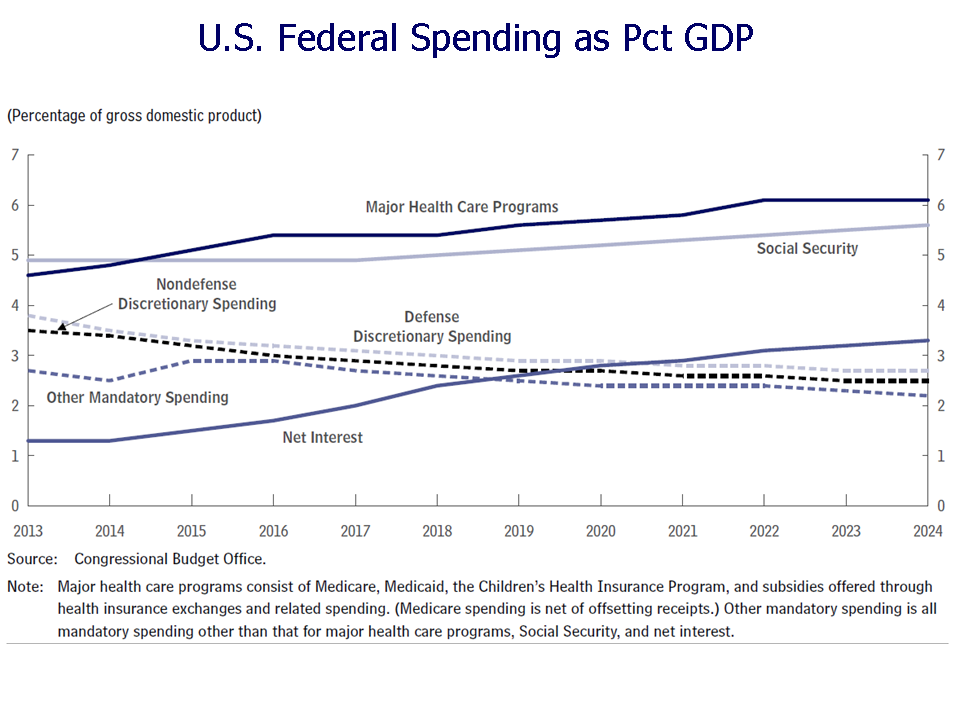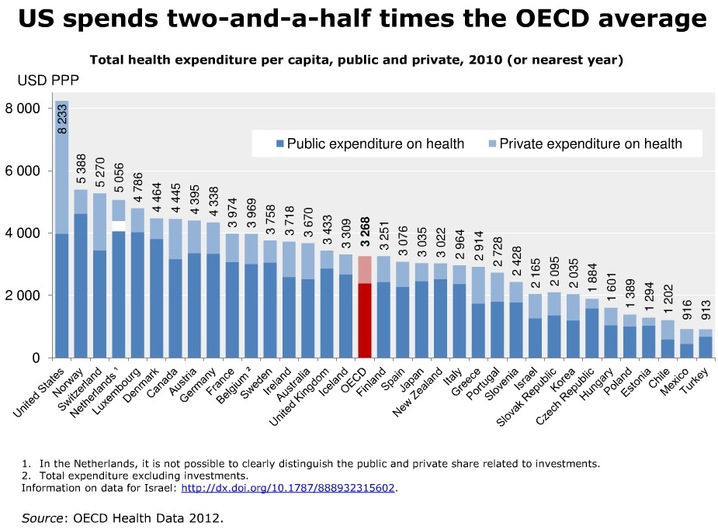We at Solidus.Center strive to generate pressure to limit the Federal Reserve System’s impact on America’s economic future by educating the American public about how the Fed negatively impacts its financial health. One challenge to this approach is that our profligate-spending federal government depends on the Fed to monetize some of its ballooning debt. It’s a vicious cycle: The Fed encourages federal deficit spending by “printing”, and the federal government encourages the Fed to monetize its debt because it spends far beyond its means. In order to break the cycle by ending economic intervention on the part of the Fed, we must first convince the federal government to taper spending so that it doesn’t depend on the Fed to monetize its debt.
It’s a challenging prospect, but one possibility may lie in the health care line item, the federal government’s largest expense. There may be a way to significantly reduce federal health care spending without reducing anyone’s benefits: reduce the cost of health care itself by enforcing anti-trust laws already on the books and breaking up medical monopolies.
As you can see from the following chart, health care spending has become the largest component of the federal budget and has therefore become the largest component of the national debt, which grows in perpetuity because the government continuously deficit spends.
As you can also see on the chart, interest paid on the debt has also become a large budget line-item and is also expected to grow in perpetuity at approximately the same rate as health care spending. This is tremendously problematic: Even under its unrealistic assumption that the economy will perpetually expand, the Congressional Budget Office admits that interest payments on the debt will soon exceed all defense and all other mandatory spending, with the exception of Social Security. The federal government requires the Fed to help it remain solvent by monetizing some of its ballooning debt.
Health care is literally bankrupting this country.
For an idea of how much more Americans pay for health care than the rest of the developed world, consider the following chart.
The U.S. spends 250% more per capita on health care than the developed country average. Do we get 250% better care? Is this figure the result of the natural relationship between supply and demand? Or is it the natural outcome of the monopolistic American medical paradigm?
Occam’s Razor and two scholarly articles suggest the latter.
Joseph M. Gabriel of the Florida State University School of Medicine argues that, just by breaking up the pharmaceutical monopolies, the federal government would save up to $50 billion in annual health care expenditures. According to Sue A. Blevins of the Cato Institute, the government could also save billions by allowing non-physician health care professionals such as midwives, nurses, and chiropractors to perform routine procedures.
If the government enforced the anti-trust laws it already has on the books and broke up medical monopolies, the cost of health care would decrease significantly, as would the cost of the national debt. Under this scenario, the American public’s elected representatives might be more likely to reform our monetary system. But the question remains: Does Washington have the political will to reject the medical industry’s lobbying dollars?
Seth Mason, Charleston SC






